Iran vows ‘harsh’ response to US killing of top general
Donald Trump has warned if Tehran carries out its promised “harsh revenge” for the killing of Qassem Soleimani, it “will be hit very fast and very hard”.
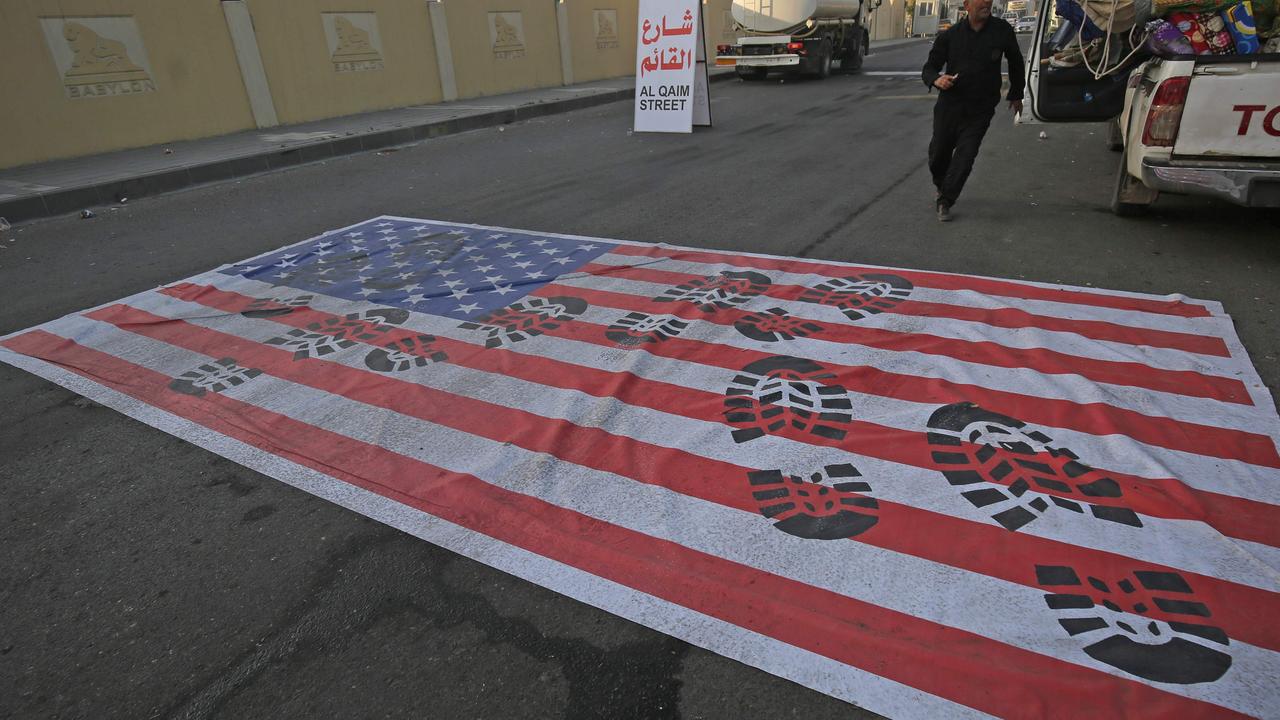
Tensions are high between Washington and Iran, after President Donald Trump declared Friday that a “reign of terror is over” with the death of an Iranian general killed in a U.S. strike.
In the wake of the targeted killing, Iran has promised to seek revenge for the U.S. air strike, which took place near Baghdad’s airport.
The Pentagon scrambled to reinforce the American military presence in the Middle East in preparation for reprisals from Tehran.
General Qassem Soleimani “made the death of innocent people his sick passion”, Mr Trump said from his estate in Palm Beach, Florida.
The president added that “a lot of lives would have been saved” if he’d been hunted down years ago.”
The president also denied claims that the targeted attack would ignite further conflict between Washington and Iran.
“We took action last night to stop a war. We did not take action to start a war,” Trump said, adding that he does not seek regime change in Iran.
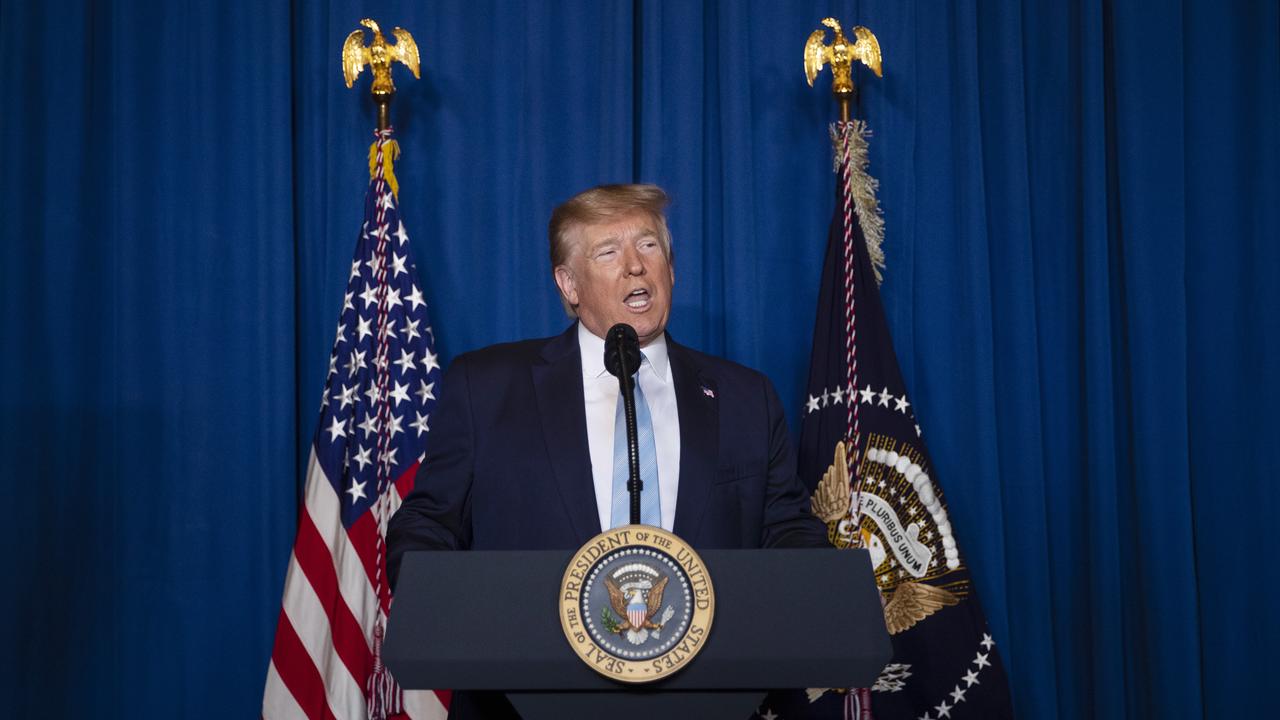
General Qassem Soleimani has killed or badly wounded thousands of Americans over an extended period of time, and was plotting to kill many more...but got caught! He was directly and indirectly responsible for the death of millions of people, including the recent large number....
— Donald J. Trump (@realDonaldTrump) January 3, 2020
Saudi Arabia was not consulted by its ally Washington the strike, an official said Sunday, as the kingdom sought to defuse soaring regional tensions.
Saudi Arabia is vulnerable to possible Iranian reprisals after Tehran vowed “revenge”.
Meanwhile, Iraq’s parliament is convening an extraordinary session where lawmakers told Reuters they would push for a vote on a resolution requiring the government to request the withdrawal of US troops from Iraq.
“There is no need for the presence of American forces after defeating Daesh (Islamic State),” said Ammar al-Shibli, a Shi’ite lawmaker and member of the parliamentary legal committee.
“We have our own armed forces which are capable of protecting the country.”
Hundreds of thousands of Iranians gathered for a funeral procession in the town of Ahvaz to commemorate Soleimani, whose death has stoked fears of a new war in the Middle East.
A sea of mourners dressed in black gathered in the south-western city, some holding portraits of the popular commander who led Iran’s elite Quds Force.
Soleimani, 62, was considered one of Iran’s most influential military leaders, wielding influence in Iraq, Syria and other parts of the Middle East where Iran has a foothold.
IRAN PROMISES REVENGE
Iran’s Supreme Leader Ayatollah Ali Khamenei vowed “harsh retaliation” after the air strike, calling Soleimani the “international face of resistance.” Khamenei declared three days of public mourning and appointed Maj. Gen. Esmail Ghaani, Soleimani’s deputy, to replace him as head of the Quds Force. Iranian President Hassan Rouhani called the killing a “heinous crime” and said his country would “take revenge.”
Iranian Foreign minister Mohammad Javad Zarif called the U.S. attack a “cowardly terrorist action” and said Iran has the right to respond “in any method and any time.”
Thousands of worshippers in Tehran took to the streets after Friday prayers to condemn the killing, waving posters of Soleimani and chanting “Death to deceitful America.”
US President Donald Trump warned late Saturday that if Tehran carries out its promised “harsh revenge” for the killing, then the US will target 52 sites in the Islamic Republic.
Trump did not specify the sites but described the targets on Twitter as being “at a very high level & important to Iran & the Iranian culture.” The sites, Trump added, “WILL BE HIT VERY FAST AND VERY HARD. The USA wants no more threats!”
He followed with another tweet that said, “They attacked us, & we hit back. If they attack again, which I would strongly advise them not to do, we will hit them harder than they have ever been hit before!”
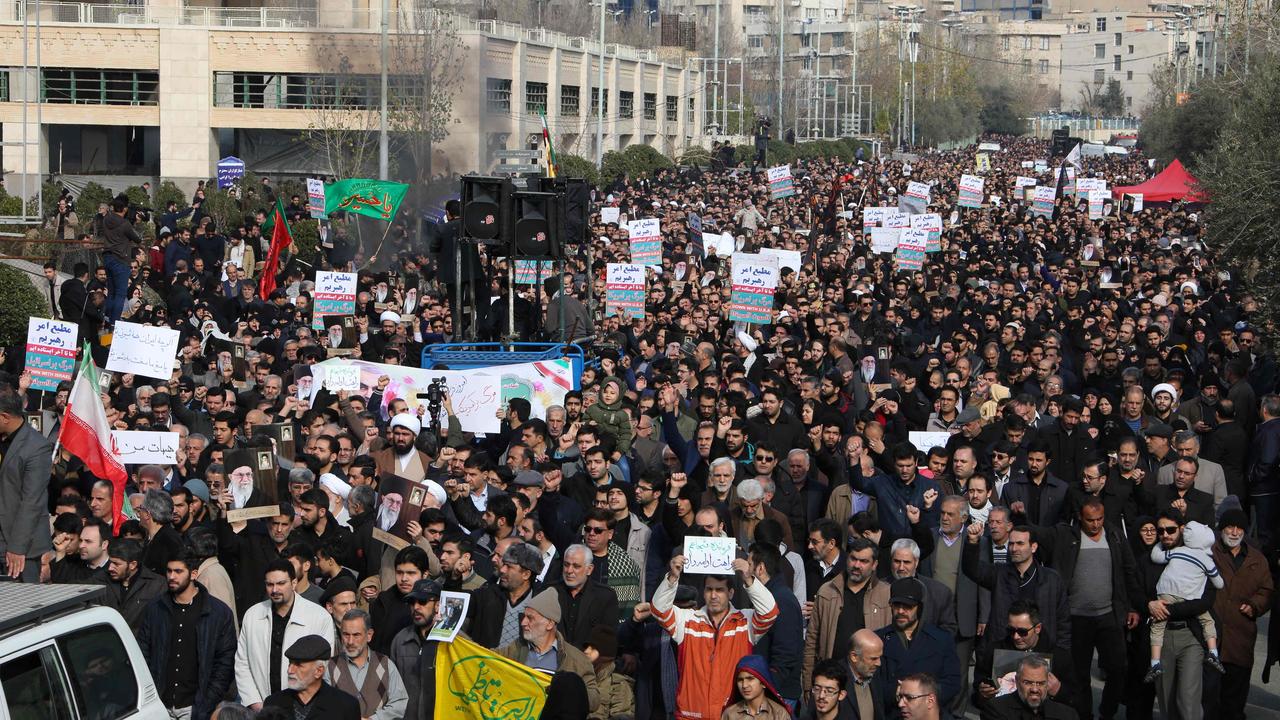
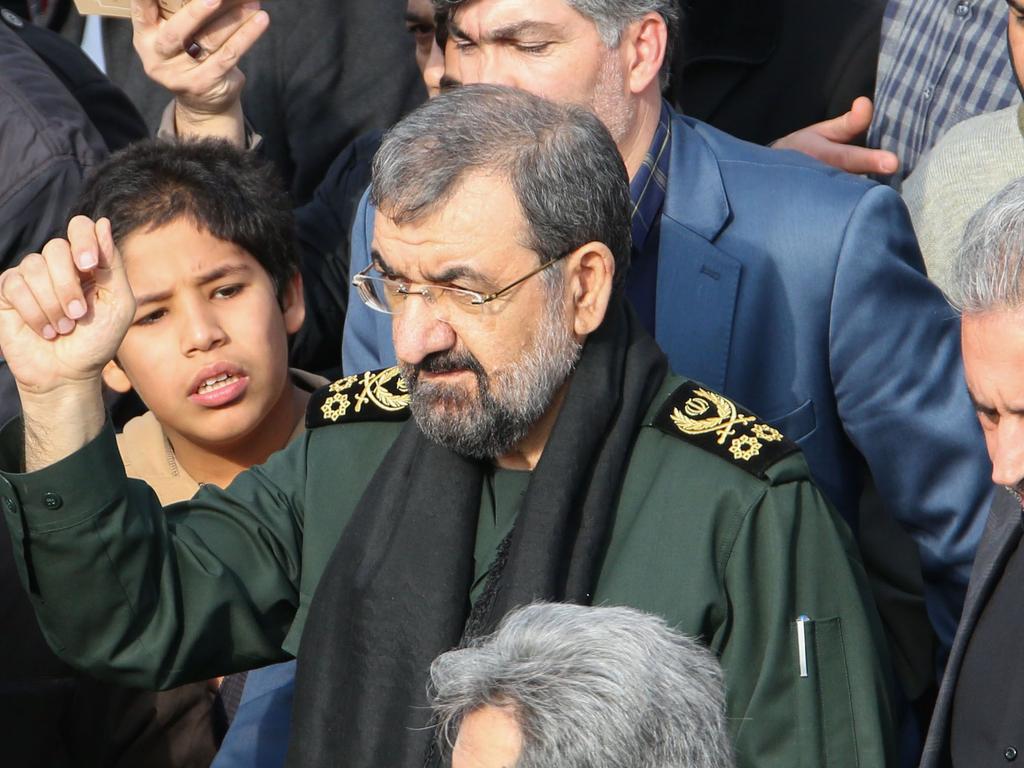
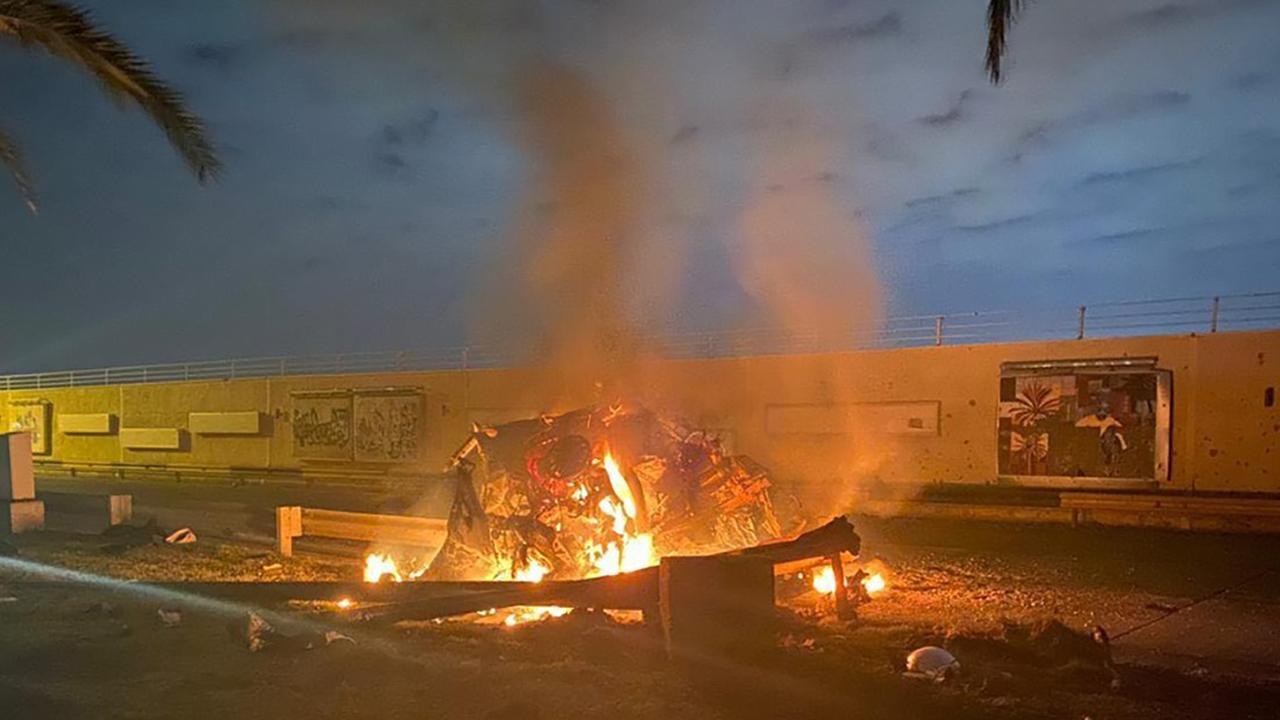
US JUSTIFICATION
The United States is sending nearly 3000 more troops to the Middle East in the volatile aftermath of the killing ordered by Mr Trump, officials said.
The Pentagon placed an Army brigade in Italy on alert to fly into Lebanon if needed to protect the American Embassy there, part of a series of military moves to protect US interests in the Middle East.
Speaking on condition of anonymity, an official said the US could send 130 to more than 700 troops to Beirut from Italy. The official was not authorised to be identified.
Reinforcements were ordered as US officials said they had compelling intelligence that Soleimani, the commander of Iran’s Quds Force, who was killed in the strike, was planning a significant campaign of violence against America.
The airport strike also killed Abu Mahdi al-Muhandis, deputy commander of Iran-backed militias in Iraq known as the Popular Mobilisation Forces, and five others, including the PMF’s airport protocol officer, Mohammed Reda, Iraqi officials said.
Mr Trump was vacationing on his estate in Palm Beach, Florida, but sent out a tweet of an American flag.
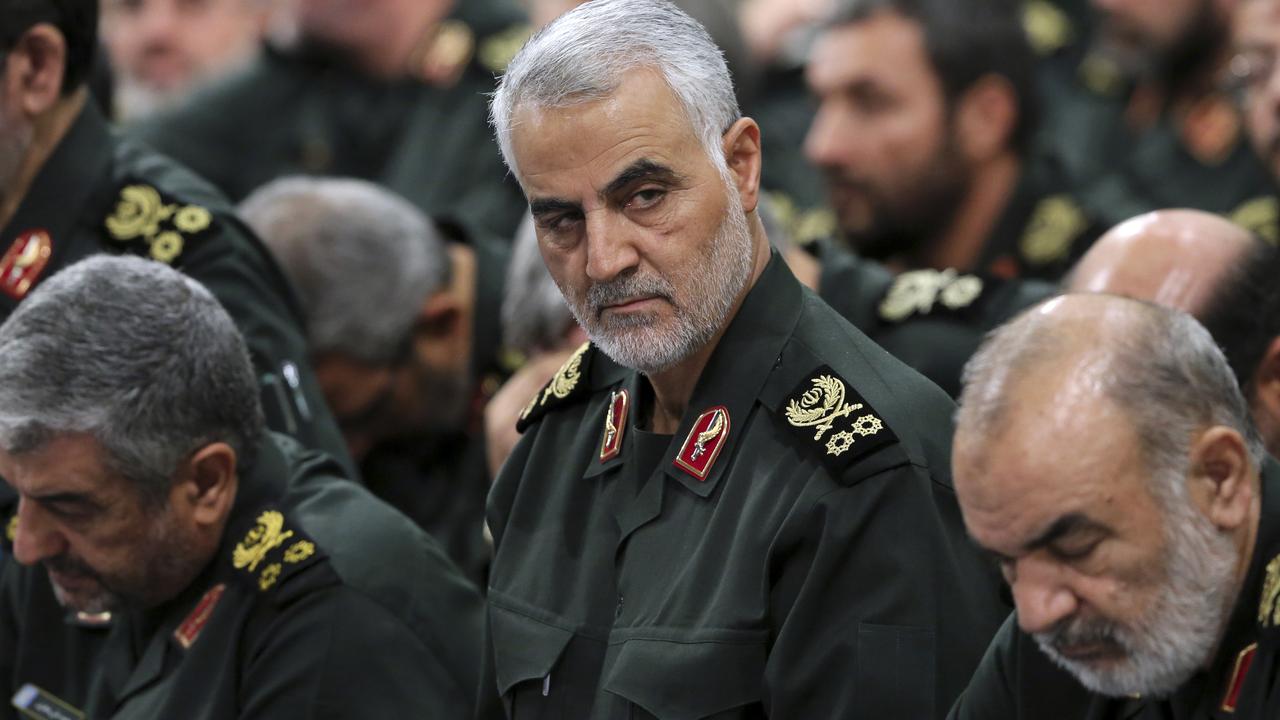
The dramatic attack comes at the start of a year in which the president faces both a Senate trial following his impeachment by the Congress and a re-election campaign.
Democrat and US congresswoman Ilhan Omar even dared to question whether Trump is using the conflict with Iran as a distraction for his challenges within the US.
So what if Trump wants war, knows this leads to war and needs the distraction?
— Ilhan Omar (@IlhanMN) January 3, 2020
Real question is, will those with congressional authority step in and stop him? I know I will. https://t.co/Fj9TMossEW
It marks a potential turning point in the Middle East and represents a drastic change for American policy toward Iran after months of tensions.
Tehran shot down a US military surveillance drone and seized oil tankers last year. The US also blames Iran for a series of other attacks targeting tankers, as well as a September assault on Saudi Arabia’s oil industry that temporarily halved its production.
The tensions are rooted in Mr Trump’s decision in May 2018 to withdraw the U.S. from Iran’s nuclear deal with world powers, struck under his predecessor, Barack Obama.
The 62-year-old Soleimani was the target of Friday’s US attack, which was conducted by an armed American drone, according to a US official.
His vehicle was struck on an access road near the Baghdad airport.
A senior Iraqi security official said the air strike took place near the cargo area after Soleimani left his plane and joined al-Muhandis and others in a car.
The official said the plane had arrived from either Lebanon or Syria. PMF officials said the bodies of Suleimani and al-Muhandis were torn to pieces.
A senior politician said Soleimani’s body was identified by the ring he wore. The officials spoke on condition of anonymity because they were not authorised to brief media.
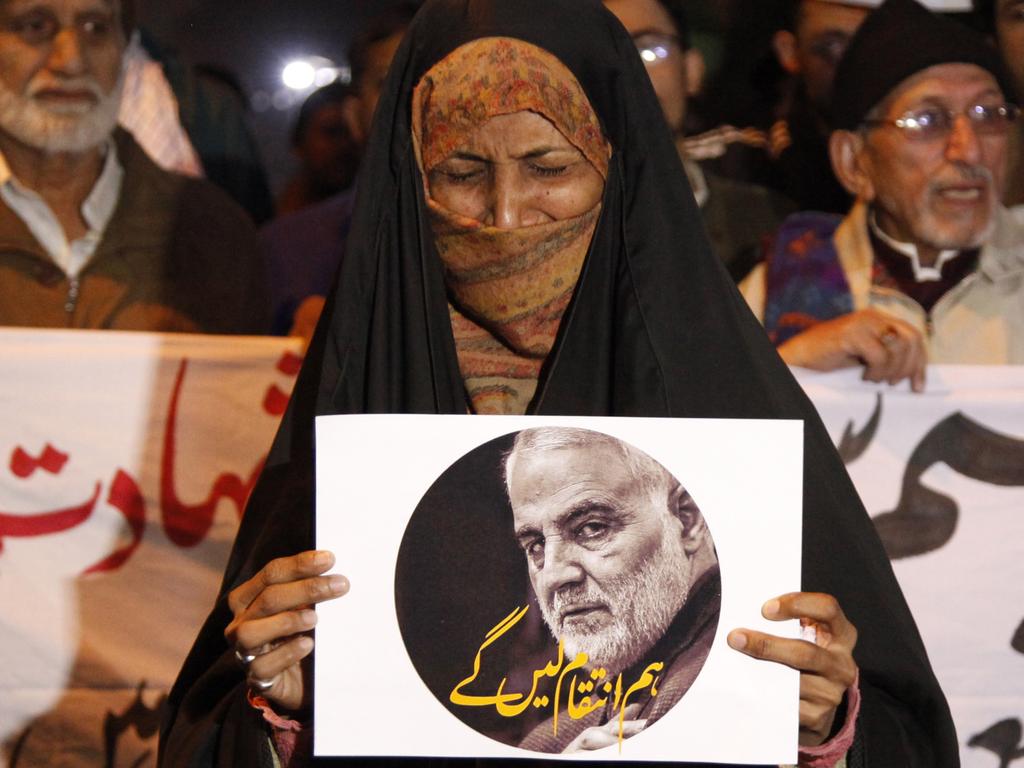
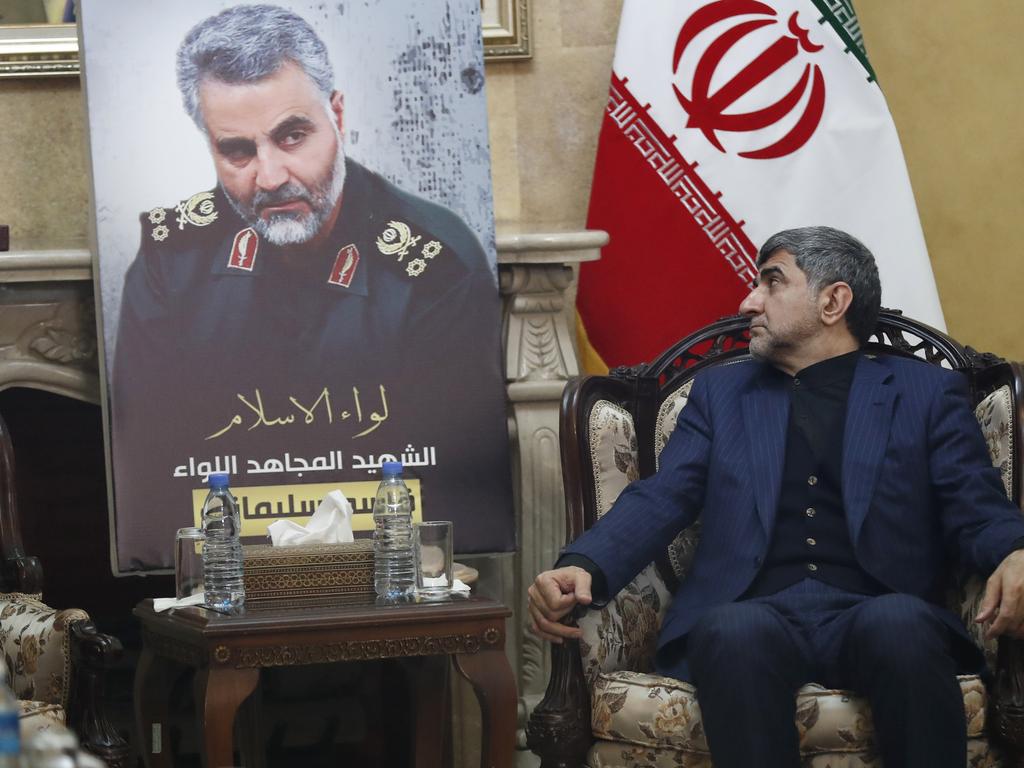
‘BRINK OF CONFLICT’
House Speaker Nancy Pelosi said the “highest priority” was to protect American lives and interests, but that “we cannot put the lives of American service members, diplomats and others further at risk by engaging in provocative and disproportionate actions.”
“Tonight’s air strike risks provoking further dangerous escalation of violence. America – and the world – cannot afford to have tensions escalate to the point of no return,” she said in a statement.
She said Congress was not consulted on the strike and demanded it be “immediately” briefed on the situation and the next steps.
Democratic presidential candidate Joe Biden said Mr Trump had “tossed a stick of dynamite into a tinderbox,” saying it could leave the US “on the brink of a major conflict across the Middle East.” Other Democratic White House hopefuls also criticised Trump’s order.
The potential for a spiralling escalation alarmed U.S. allies and rivals alike. “We are waking up in a more dangerous world,” France’s deputy minister for foreign affairs, Amelie de Montchalin, told RTL radio.
The European Union warned against a “generalised flare-up of violence.”
Russia condemned the killing, and fellow Security Council member China said it was “highly concerned.”
Britain and Germany noted that Iran also bore some responsibility for escalating tensions, but still advised against escalating conflict. The British government urged caution, saying “further conflict is in none of our interests.”
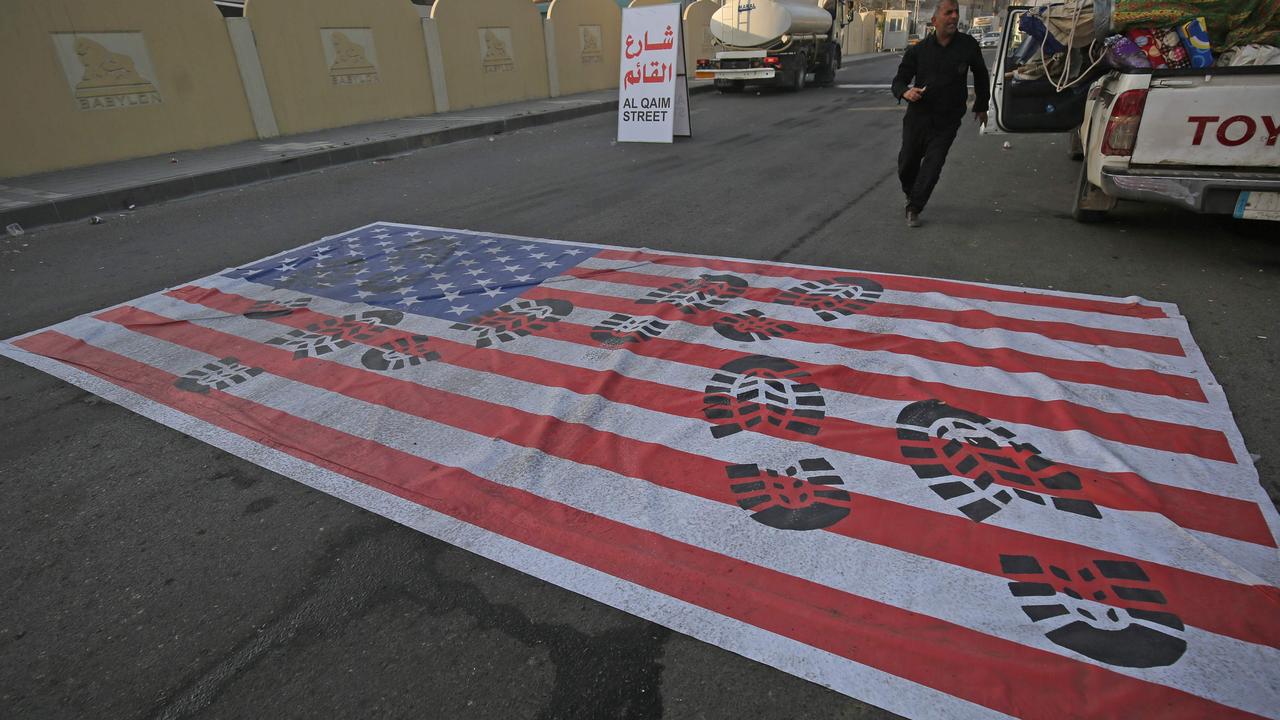
But Mr Trump’s allies were quick to praise the action. “To the Iranian government: if you want more, you will get more,” tweeted South Carolina Sen. Lindsey Graham.
The killing promised to strain relations with Iraq’s government, which is closely allied with both Washington and Tehran. Prime Minister Adel Abdul-Mahdi condemned the strike as an “aggression against Iraq” and a “blatant attack on the nation’s dignity.”
He also called for an emergency session of parliament to take “necessary and appropriate measures to protect Iraq’s dignity, security and sovereignty.”
The Syrian government, which has received key support from Iran throughout the civil war, also condemned the strike, saying it could lead to a “dangerous escalation” in the region. Hassan Nasrallah, the head of the Iran-backed Lebanese militant group Hezbollah, released a statement mourning those killed in the US strike, saying their blood was not wasted.
The US' act of international terrorism, targeting & assassinating General Soleimani—THE most effective force fighting Daesh (ISIS), Al Nusrah, Al Qaeda et al—is extremely dangerous & a foolish escalation.
— Javad Zarif (@JZarif) January 3, 2020
The US bears responsibility for all consequences of its rogue adventurism.
DEAD GENERAL A ‘CULTURAL ICON’
For Iran, the killing represents the loss of a cultural icon who represented national pride and resilience while facing US sanctions. While careful to avoid involving himself in politics, Soleimani’s profile rose sharply as US and Israeli officials blamed him for Iranian proxy attacks abroad. While Iran’s conventional military has suffered under 40 years of American sanctions, the Guard has built up a ballistic missile program. It also can strike asymmetrically in the region through forces like Lebanon’s Hezbollah and Yemen’s Houthi rebels. The US long has blamed Iran for car bombings and kidnappings it never claimed.
As the head of the Quds, or Jerusalem, Force of Iran’s paramilitary Revolutionary Guard, Soleimani led all of its expeditionary forces and frequently shuttled between Iraq, Lebanon and Syria. Quds Force members have deployed into Syria’s long war to support President Bashar Assad, as well as into Iraq in the wake of the 2003 US invasion that toppled dictator Saddam Hussein, a longtime foe of Tehran.
Soleimani rose to even greater prominence by advising forces fighting the Islamic State group in Iraq and in Syria.
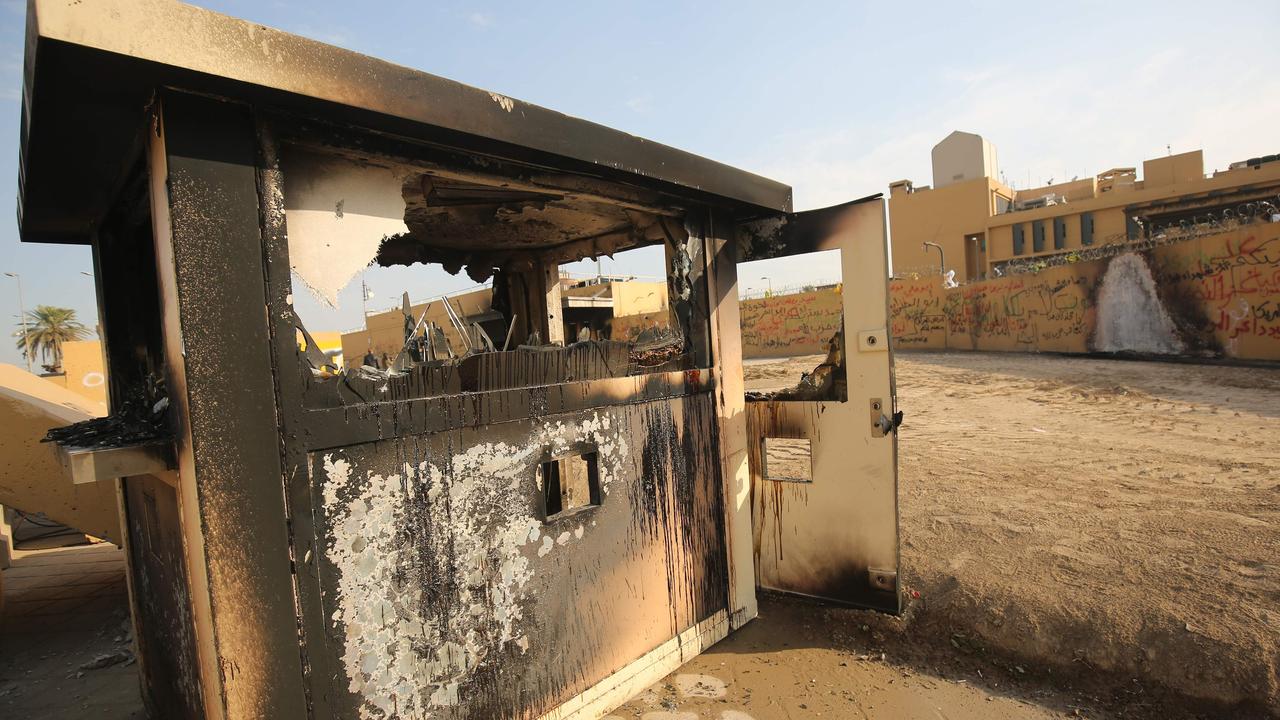
US officials say the Guard under Soleimani taught Iraqi militants how to manufacture and use especially deadly roadside bombs against US troops after the invasion of Iraq. Iran has denied that. Soleimani himself remains popular among many Iranians, who see him as a selfless hero fighting Iran’s enemies abroad.
Soleimani had been rumoured dead several times, including in a 2006 aeroplane crash that killed other military officials in northwestern Iran and following a 2012 bombing in Damascus that killed top aides of Assad. Rumours circulated in November 2015 that Soleimani was killed or seriously wounded leading forces loyal to Assad as they fought around Syria’s Aleppo.
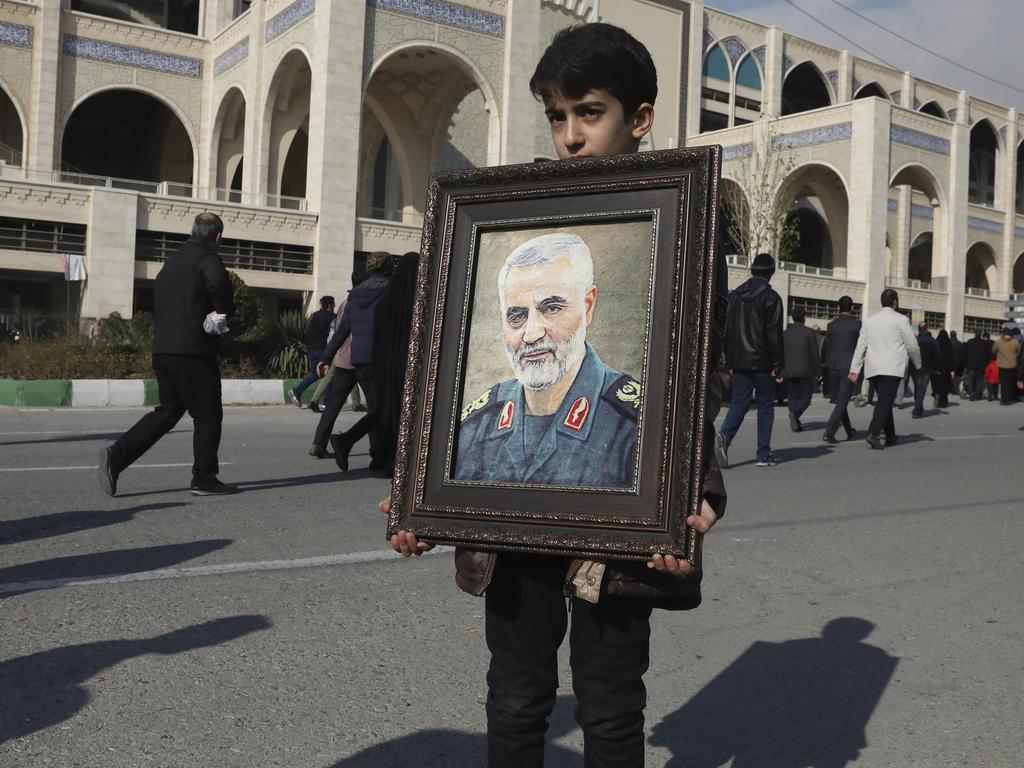
TEHRAN TENSION
Soleimani’s killing follows the New Year’s Eve attack by Iran-backed militias on the US Embassy in Baghdad. The two-day embassy attack, which ended Wednesday, prompted Trump to order about 750 US troops deployed to the Middle East. No one was killed or wounded in the attack, which appeared to be mainly a show of force.
It prompted Secretary of State Mike Pompeo to postpone his trip to Ukraine and four other countries “to continue monitoring the ongoing situation in Iraq and ensure the safety and security of Americans in the Middle East,” the State Department said.
The breach at the embassy followed U.S. air strikes Sunday that killed 25 fighters of Kataeb Hezbollah, an Iran-backed militia operating in Iraq and Syria. The U.S. military said the strikes were in retaliation for last week’s killing of an American contractor in a rocket attack on an Iraqi military base that the US blamed on the militia.
U.S. officials have suggested they were prepared to engage in further retaliatory attacks in Iraq.
“The game has changed,” Defence Secretary Mark Esper said Thursday, telling reporters that violent acts by Iran-backed Shiite militias in Iraq will be met with US military force.
--- Karam reported from Beirut. Associated Press writers Robert Burns and Zeke Miller in Washington; Jon Gambrell in Dubai, United Arab Emirates; Nasser Karimi and Amir Vahdat in Tehran, Iran; Bassem Mroue and Sarah El Deeb in Beirut and Joseph Krauss in Jerusalem contributed to this report.



